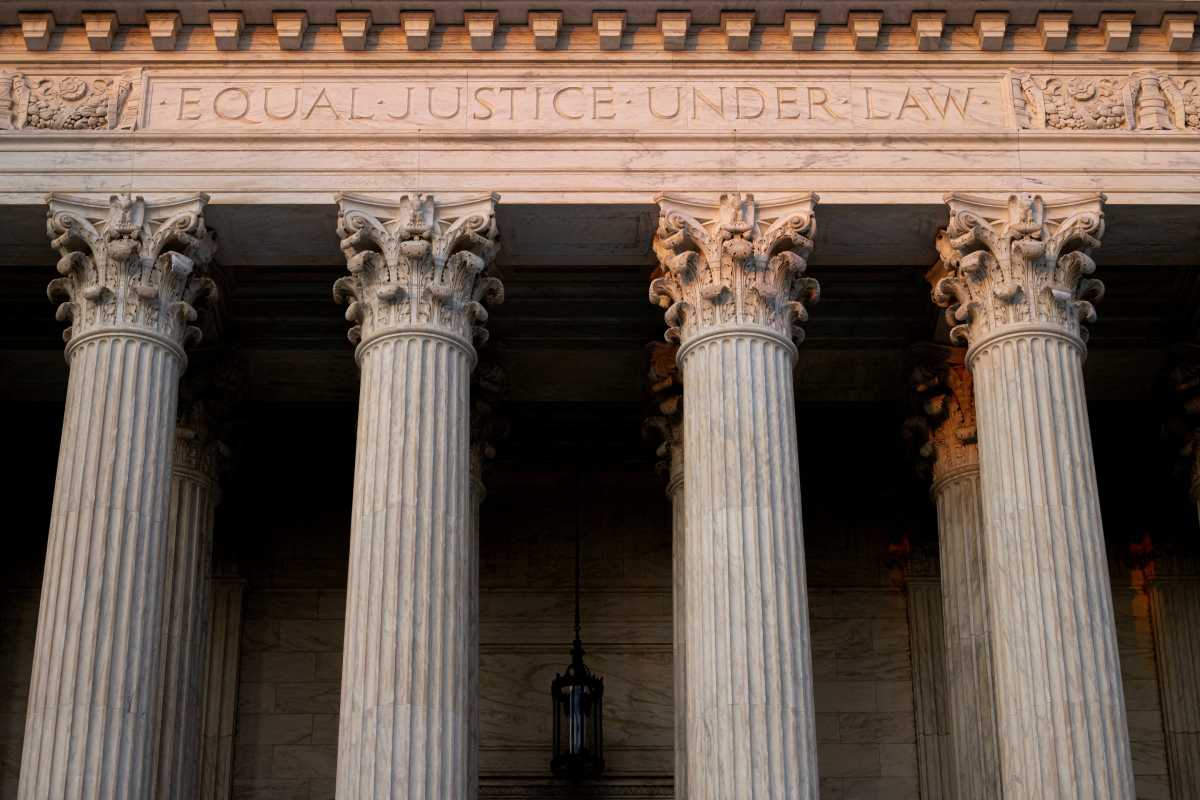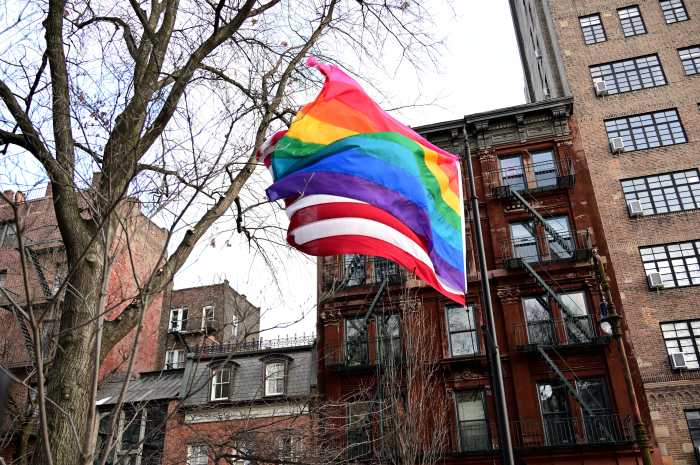The Supreme Court issued an order list on June 30 that contained both its follow-up to the disappointing ruling on June 18 in US v. Skrmetti, which rejected an equal protection challenge to Tennessee’s ban on gender-affirming care for minors, and its decision to tackle the issue of transgender women’s sports participation when the court reconvenes for its October 2025 term. Earlier this year, the court announced that next term’s docket will also include a challenge to Colorado’s ban on conversion therapy practiced on minors.
The portents are not good, unfortunately, in light of the ideological divides on the court as reflected in Skrmetti. While Chief Justice John Roberts’ opinion dodged the question of whether laws that target trans people for discrimination are subject to heightened scrutiny under the Equal Protection Clause, the court’s action on June 30 on four pending petitions for review sent a message to the federal appeals courts for the Fourth, Ninth, and 10th Circuits that a majority of the court sees Skrmetti as having potential application to questions about birth certificates, Medicaid, and state public employee insurance coverage of gender affirming care.
First, as to Skrmetti, the Sixth Circuit Court of Appeals had reversed decisions by the district courts in Tennessee and Kentucky, which had issued preliminary injunctions against enforcement of the bans on gender-affirming care for minors in those two states. The plaintiffs in the Tennessee and Kentucky cases asked the Supreme Court to review the Sixth Circuit’s decision, raising equal protection and due process arguments. The Solicitor General for the Biden administration, who had intervened in support of the plaintiffs in the Tennessee case, also petitioned the Supreme Court for review, but only on the equal protection question. The Solicitor General’s petition was granted, with the result we know: an adverse opinion rejecting the equal protection claim.
The plaintiffs’ equal protection theory was that the Tennessee and Kentucky laws discriminated against the plaintiffs, transgender youths, on the basis of their sex and gender identity. The plaintiffs’ due process theory was that the state laws unconstitutionally abridged the liberty of the transgender youths’ parents by interfering with their ability to provide appropriate health care for their children. The district courts found that plaintiffs were likely to prevail on these arguments and issued preliminary injunctions against enforcement of the law.
The Sixth Circuit rejected both arguments. Curiously, although it is clear from the legislative history of these laws that they specifically targeted transgender youth and their parents, the Sixth Circuit opinion by Judge Jeffrey Sutton rejected the claim that the law discriminated based on sex or gender identity. Observing that the laws did not forbid gender-affirming care for adults, he found that the only discrimination was based on age and the use to which the treatment would be put, as the same puberty blockers and cross-sex hormones were allowed for uses other than gender transition. And as to those forms of discrimination, the Sixth Circuit found that it was within the power of the state to deny treatments to minors that are available to adults, so long as the state had a rational basis for doing so, and that the state’s regulatory authority over health care gave it the power to decide which treatments could be administered. The Sixth Circuit accepted the state’s argument that disagreement in the medical profession about the appropriateness of providing such care to minors made it rational for the state to embrace caution and ban the treatments in light of the risks they might entail. The court was not impressed by the weight to professional association approval of the treatments. Heightened scrutiny, which would have placed the burden on the state to provide a strong justification for a ban, was not applied.
The Supreme Court followed the Sixth Circuit’s lead, and thus never ruled on whether discrimination against transgender people is “suspect” and subject to “heightened scrutiny.” Concurring opinions by Justices Amy Coney Barrett and Samuel Alito said that discrimination against transgender people is not subject to heightened scrutiny, but they were not speaking for the court. Because only the equal protection issue was presented by the Solicitor General, the court did not discuss parental due process rights.
The dissenters in Skrmetti would have applied heightened scrutiny and sent the case back to the Sixth Circuit for the application of this more demanding standard of judicial review.
On June 30, the court granted review, vacated, and sent back to the courts of appeals decisions in three cases (from Idaho, West Virginia, and North Carolina) challenging the omission of gender-affirming care from insurance programs, either state Medicaid programs or public employee insurance programs. In all three cases, the courts of appeals ruled in favor of the plaintiffs on equal protection grounds. In a fourth case, from Oklahoma, the circuit court ruled against the state’s refusal to issue new birth certificates to transgender applicants showing their claimed gender identity. The Supreme Court also vacated this decision for reconsideration. In all four cases, the court directed the lower courts to give “further consideration” in light of Skrmetti.
The court gave no explicit guidance to the lower courts about how Skrmetti might apply to these cases, and the failure of the court to rule in Skrmetti on whether transgender discrimination is subject to heightened scrutiny leaves ambiguity in its wake. One suspects that the concurring opinions will provide fodder for those court of appeals panels inclined to rule against the transgender litigants in those cases.
In another “mopping up” action, the court announced that it would not grant review to the Tennessee and Kentucky plaintiffs in the Skrmetti case, thus leaving in place the Sixth Circuit’s holding that the bans on gender-affirming care for minors did not violate the rights of their parents. Many of the lower court rulings finding constitutional flaws in state bans on gender-affirming care for minors have been grounded both in equal protection and due process. The Supreme Court’s failure to address the due process issue in Skrmetti leaves the Sixth Circuit’s decision as a binding precedent only in that circuit, but sets no national precedent, leaving the possibility that such laws can still be attacked in other parts of the country using the due process argument without having to confront a Supreme Court precedent.
More fallout from Skrmetti came in the Seventh and 11th Circuits, where the appeals courts were considering appeals in transgender discrimination cases. In the Seventh Circuit, which has strong precedents upholding the rights of transgender students to use public school restrooms consistent with their gender identity, the court quickly asked the parties to brief the question whether Skrmetti requires the court to overrule those precedents and rule in favor of the school district. In the 11th Circuit, the court called for briefing on the impact Skrmetti might have in an appeal of the district court’s holding that the Florida Medicaid program could not deny coverage for gender-affirming care.
In another disappointing decision issued June 27, Mahmoud v. Taylor, the court held that parents with religious objections to their children being exposed to LGBTQ+ material in the public schools have a Free Exercise right to advance notice and opt-out. The sloppy decision by Justice Sam Alito, a free exercise “maximalist,” did not rely on an argument that failing to accommodate the objections of parents violates their due process parenting rights, but instead premised the opinion solely on Free Exercise of Religion. Justice Sotomayor’s dissenting opinion pointed out the bizarre consequences of the court’s ruling, departing from precedent to give religious parents an effective veto over public school curriculum decisions and threatening a chaotic situation in the classroom.
In Mahmoud, the school district originally allowed for a religious opt-out when it added some storybooks with LGBTQ characters to its curriculum but found that so many parents had applied for the opt-out that it became unworkable. Large numbers of students would have to be dismissed from classes when the books were being used, defeating the purpose of adding the books to the school’s curriculum. The lower courts upheld the district court’s denial of preliminary injunctive relief in this lawsuit brought by parents. The school’s difficulty in administering the opt-out didn’t bother Justice Alito, but the net effect of the court’s ruling is that school districts that want to avoid litigation and the administrative burdens of opt-outs will just decide to purge from their curriculum anything to which religious parents might object. The scope of the court’s ruling, in Justice Alito’s words, is broad and ambiguous, as Justice Sotomayor showed with examples of things religious parents might bind to be offensive. In other words, Alito’s opinion effectively turns the Free Exercise Clause into a “don’t say gay” law of the type that aroused such controversy in Florida and other states when the subject was first broached.
As to next term’s cases, there are splits among the lower federal appeals courts on the question of whether transgender girls should be allowed to compete in women’s sports, as well as whether laws banning conversion therapy for minors violate the free speech rights of counselors who claim that their “talk therapy” should receive the same treatment as other forms of speech protected by the First Amendment. At stake are questions about whether Title IX of the Education Amendments Act, which forbids discrimination “on the basis of sex” in educational institutions, incorporates the reasoning of the Bostock case under Title VII of the Civil Rights Act, which held that employment discrimination because of sexual orientation or transgender status should be considered discrimination “because of sex.” These cases also may prompt the court to finally address directly equal protection issues involving LGBTQ plaintiffs. A decision on the conversion therapy case may sharply undermine state regulation of mental health practice by licensed counselors by treating “talk therapy” as “pure speech” rather than a health care practice subject to regulation.
At a high level of generality, it appears that the conservative majority on the court is generally not supportive of LGBTQ rights, but the court occasionally comes up with surprises, such as its 2020 ruling in Bostock. However, two justices who were part of that majority (Ruth Bader Ginsburg and Stepen Breyer, both appointed by President Bill Clinton) are no longer on the Court, and justices have frequently commented that any change in the composition of the court creates a “new” court whose direction cannot necessarily be foreseen. There will certainly be more to say as briefing proceeds on these cases.





































